Best Health Monitor Apps in 2023
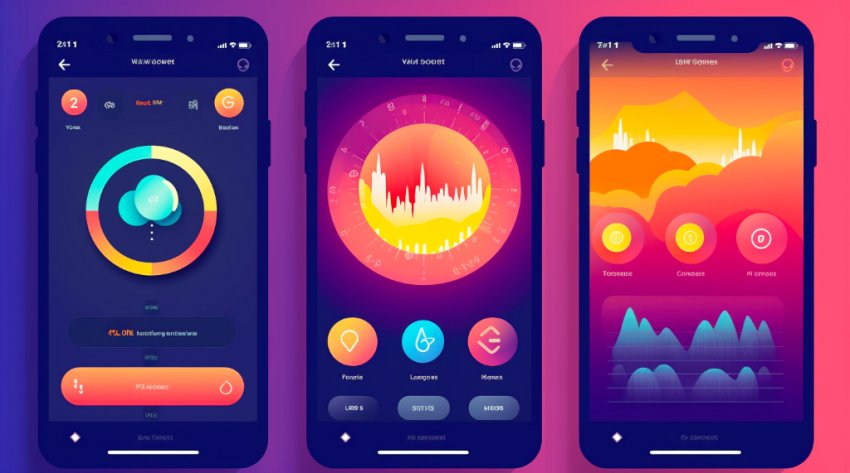
Health monitor apps are apps that help you track and improve various aspects of your health, such as your heart rate, blood pressure, sleep quality, stress level, and more. They can help you prevent or manage chronic conditions, improve your fitness and performance, and enhance your overall well-being. But how do you choose the best app for your needs and goals? Well, I’ve done some research and tried out some of the most popular and recommended apps for health monitoring. Here are my top picks for the best health monitor apps in 2023.
1. Fitbit: The Best App for All-Around Health Monitoring
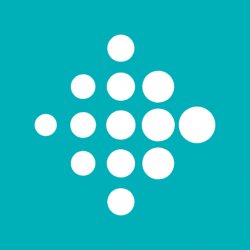
Fitbit is one of the most well-known and trusted brands in the health and fitness industry. It offers a range of devices that can track your activity, heart rate, sleep, blood oxygen level, skin temperature, stress, and more. You can sync your device with the Fitbit app, which gives you a comprehensive dashboard of your health data, insights, trends, and personalized guidance. You can also join challenges, compete with friends, earn badges, and access a library of workouts, mindfulness sessions, nutrition tips, and more. Fitbit is a paid app, but it offers a 90-day free trial of its premium features.
2. Apple Health: The Best App for iOS Users
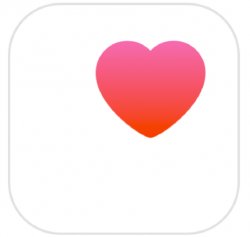
Apple Health is the default app for iOS users who want to monitor their health. It works with your iPhone, Apple Watch, and other compatible devices and apps to collect and display your health data in one place. You can track your activity, heart rate, sleep, blood pressure, blood glucose, cholesterol, ECG, hearing health, menstrual cycle, fertility, and more. You can also set goals, get alerts, view trends, and share your data with your doctor or family members. Apple Health is a free app that comes pre-installed on your iOS device.
Available on: iOS
3. Samsung Health: The Best App for Android Users
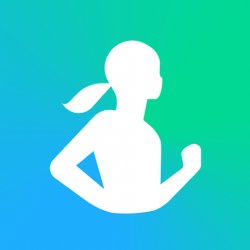
Samsung Health is the default app for Android users who want to monitor their health. It works with your Samsung smartphone, Galaxy Watch, and other compatible devices and apps to collect and display your health data in one place. You can track your activity, heart rate, sleep, blood pressure, blood glucose, oxygen saturation, stress level, weight management, and more. You can also set goals, get feedback, view trends, and access a library of workouts, mindfulness sessions, nutrition tips, and more. Samsung Health is a free app that comes pre-installed on your Samsung device.
4. Withings Health Mate: The Best App for Smart Scales and Blood Pressure Monitors

Withings Health Mate is an app that works with Withings’ smart scales and blood pressure monitors to help you monitor your weight and cardiovascular health. It syncs with your devices via Bluetooth or Wi-Fi and shows you your weight trends, BMI (body mass index), body fat percentage (BFP), muscle mass (MM), bone mass (BM), water percentage (WP), heart rate (HR), blood pressure (BP), pulse wave velocity (PWV), ECG (electrocardiogram), temperature (TEMP), CO2 level (CO2), sleep score (SS), sleep stages (SSS), snoring duration (SD), breathing disturbances (BD), sleep heart rate (SHR), sleep respiratory rate (SRR), sleep temperature variation (STV), wake-up duration (WD), wake-up heart rate (WHR), wake-up respiratory rate (WRR), wake-up temperature variation (WTV). You can also set goals, get insights, view trends, and share your data with your doctor or family members. Withings Health Mate is a free app, but it requires Withings’ devices to work.
5. Cardiogram: The best app for heart health
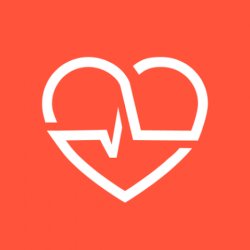
Cardiogram is an app that works with your Apple Watch, Fitbit, Garmin, or Wear OS device to help you monitor your heart health. It uses artificial intelligence to analyze your heart rate data and detect signs of atrial fibrillation, sleep apnea, diabetes, hypertension, and more. You can also track your stress level, sleep quality, activity level, and calories burned. You can also join studies, get tips, view trends, and share your data with your doctor or family members. Cardiogram is a free app, but it offers a premium subscription for more features.
6. HealthTap: Your Personal Health Advisor

HealthTap is an exceptional app if you're looking for a comprehensive health monitor. With this app, you can access a vast knowledge pool of health-related queries answered by real doctors, making it easier to get reliable information about your health concerns.
The app also allows you to schedule live consultations with doctors, dentists, and psychologists, view your lab results, and manage your prescriptions. However, not all features are accessible with the free version, and the app may not cover all health concerns.
7. Talkspace: Your Virtual Therapist

Talkspace is an ideal solution for anyone seeking accessible mental health support. The app connects users with licensed therapists based on their individual needs, preferences, and goals, making it easier to fit therapy sessions into even the busiest of schedules.
However, some users may face challenges in matching with a suitable therapist. The app includes a virtual therapy room that can be accessed from your mobile device or computer's web browser, allowing for flexibility and convenience.
8. Noom: Your Weight Management Coach
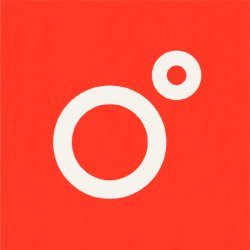
Noom is a unique health monitor app designed to help you achieve your weight loss goals through a personalized plan. After filling out an initial questionnaire, you're paired with a health coach who will guide you towards your health objectives.
Despite being a bit pricier than other options, Noom offers a wide array of features, including meal tracking and exercise prompts. However, it may not be ideal for individuals with a history of disordered eating.
9. Fooducate: Your Nutritionist in Your Pocket
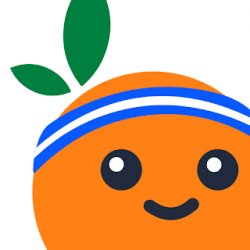
Fooducate is designed to help users understand their food choices better. With a simple scan of your food's barcode, this app provides a comprehensive breakdown of its nutritional composition, including its health and wellness score.
The app's database might not include all foods, but its user-friendly interface makes it a valuable tool for individuals seeking to improve their dietary habits.
10. MyPlate: Your Diet Planner
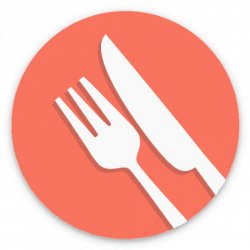
MyPlate is a comprehensive food tracking app that helps users monitor their dietary intake and assess their nutritional needs. The app features a vast database of foods and drinks, making it easier to maintain a food diary.
Additionally, MyPlate enables users to set personal goals and offers reminders throughout the day to make healthier choices, including sufficient water intake.
Tips for Using Health Monitor Apps
Health monitor apps can be very useful tools for improving your health, but they are not substitutes for professional medical advice or diagnosis. Here are some tips for using health monitor apps safely and effectively:
- Always consult your doctor before starting or changing any health or fitness program, especially if you have any medical conditions or concerns.
- Follow the instructions and recommendations of your device and app manufacturer, and make sure they are compatible with your smartphone and operating system.
- Calibrate and update your device and app regularly to ensure accuracy and reliability of your data.
- Wear your device correctly and comfortably, and avoid wearing it too tight or too loose.
- Check your data regularly and look for any unusual or abnormal patterns or changes. If you notice anything concerning, contact your doctor immediately.
- Don’t obsess over your data or compare yourself with others. Use your data as a guide and a motivation, not as a judgment or a pressure.
- Don’t rely solely on your data or app for making health decisions. Use your common sense and listen to your body. If you feel unwell or experience any symptoms, seek medical attention right away.
Conclusion
Health monitor apps can help you track and improve various aspects of your health, such as your heart rate, blood pressure, sleep quality, stress level, and more. They can help you prevent or manage chronic conditions, improve your fitness and performance, and enhance your overall well-being. But how do you choose the best app for your needs and goals? Well, I’ve done some research and tried out some of the most popular and recommended apps for health monitoring.
More to Read:
Previous Posts:








